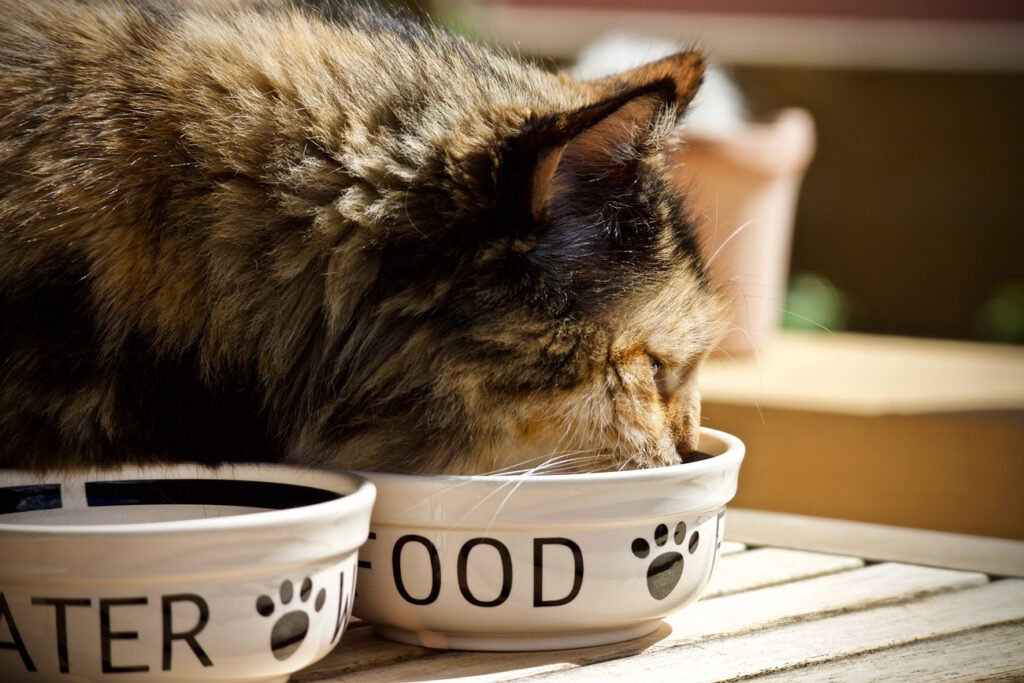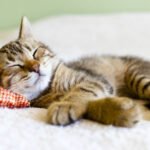Table of Contents
As cats age, their dietary needs change. Providing a healthy diet for senior cats is crucial to ensure they maintain optimal health and well-being in their golden years. Here are 10 essential tips for creating a healthy diet for senior cats.

1. Choose High-Quality Protein: Healthy Diet for Senior Cats
Senior cats require high-quality protein to maintain muscle mass and overall health. Opt for cat foods that list meat, poultry, or fish as the primary ingredient.
- Tip: Look for foods specifically formulated for senior cats, as they often contain higher protein levels. For more information, visit Cornell Feline Health Center.
2. Ensure Proper Hydration
Senior cats are prone to dehydration, which can lead to urinary and kidney issues. Provide fresh water at all times and consider incorporating wet food into their diet to increase moisture intake.
- Tip: Use a cat water fountain to encourage drinking, as some cats prefer running water. For more advice, visit PetMD.
3. Monitor Caloric Intake: Healthy Diet for Senior Cats
Older cats are less active and may require fewer calories. Monitor your cat’s weight and adjust their caloric intake to prevent obesity or excessive weight loss.
- Tip: Consult your veterinarian to determine the appropriate caloric intake for your senior cat. For more information, visit Cornell Feline Health Center.
4. Provide Joint Support
Joint health is a common concern for senior cats. Look for cat foods that contain joint-supporting ingredients like glucosamine and chondroitin.
- Tip: Consider adding omega-3 fatty acid supplements to reduce inflammation and support joint health. For more tips, visit Cornell Feline Health Center.
5. Support Digestive Health: Healthy Diet for Senior Cats
Senior cats can experience digestive issues such as constipation or diarrhea. Ensure their diet includes fiber and probiotics to support healthy digestion.
- Tip: Gradually introduce new foods to avoid gastrointestinal upset. For more advice, visit ASPCA.
6. Maintain Dental Health
Dental problems are common in older cats. Choose foods that promote dental health or consider adding dental treats and regular brushing to your cat’s routine.
- Tip: Schedule regular dental check-ups with your veterinarian. For more information, visit Cornell Feline Health Center.
7. Address Specific Health Issues: Healthy Diet for Senior Cats
Senior cats may develop health conditions such as kidney disease, diabetes, or hyperthyroidism. Work with your veterinarian to choose a diet that addresses these specific needs.
- Tip: Prescription diets may be necessary to manage certain health conditions effectively. For more advice, visit PetMD.
8. Regular Veterinary Check-Ups
Regular veterinary check-ups are essential for monitoring your senior cat’s health and adjusting their diet as needed. Schedule annual or bi-annual visits to stay on top of their health needs.
- Tip: Keep a record of your cat’s weight, appetite, and behavior to discuss with your veterinarian. For more tips, visit ASPCA.
9. Avoid Toxic Foods: Healthy Diet for Senior Cats
Ensure your cat’s diet is free from toxic foods such as chocolate, onions, garlic, and certain artificial sweeteners like xylitol. Keep these foods out of reach.
- Tip: Be cautious with human foods and consult your veterinarian before introducing new items into your cat’s diet. For more information, visit ASPCA.
10. Encourage a Balanced Diet
A balanced diet is crucial for your senior cat’s overall health. Ensure their diet includes a proper mix of proteins, fats, vitamins, and minerals to meet their nutritional needs.
- Tip: Consider consulting a veterinary nutritionist for personalized dietary advice. For more tips, visit Cornell Feline Health Center.
Conclusion: Healthy Diet for Senior Cats
Providing a healthy diet for senior cats involves choosing high-quality protein, ensuring proper hydration, and addressing specific health needs. By following these tips and working closely with your veterinarian, you can help your senior cat maintain optimal health and enjoy their golden years. For more advice on cat care and nutrition, visit our website.
Frequently Asked Questions about Healthy Diet for Senior Cats
What should I feed my senior cat?
Feed your senior cat high-quality protein, wet food for hydration, and foods that support joint and digestive health. Consult your veterinarian for personalized recommendations. For more information, visit Cornell Feline Health Center.
How much should I feed my senior cat?
The amount of food depends on your cat’s age, weight, activity level, and health. Your veterinarian can help determine the appropriate portion sizes and caloric intake. For more advice, visit PetMD.
What are common health issues in senior cats that require dietary changes?
Common health issues include kidney disease, diabetes, hyperthyroidism, and arthritis. Each condition may require specific dietary adjustments. Work with your veterinarian to create an appropriate diet plan. For more information, visit ASPCA.
Are supplements necessary for senior cats?
Supplements can be beneficial for joint support, skin health, and overall well-being. Always consult your veterinarian before adding supplements to your cat’s diet. For more tips, visit Cornell Feline Health Center.
How can I encourage my senior cat to drink more water?
Encourage hydration by providing fresh water in multiple locations, using a cat water fountain, and incorporating wet food into their diet. For more advice, visit PetMD.










